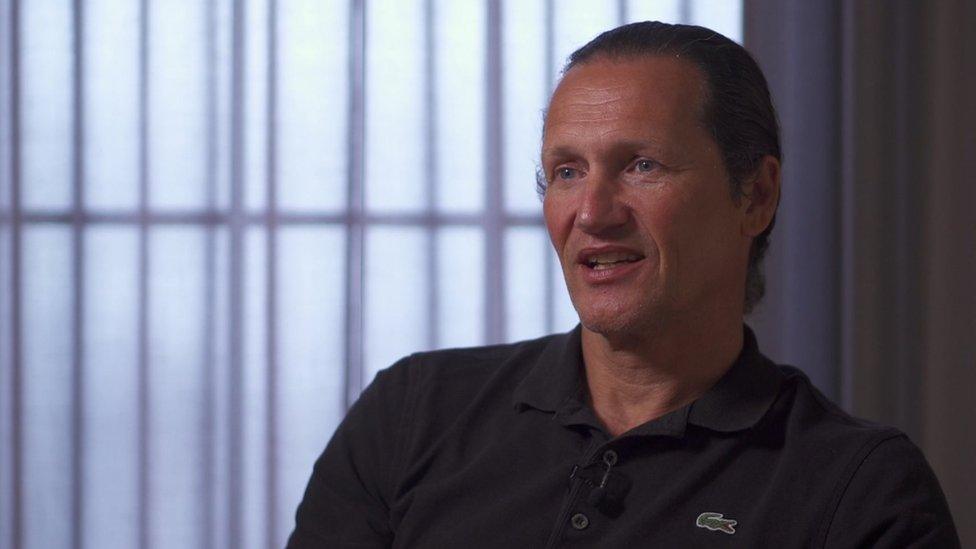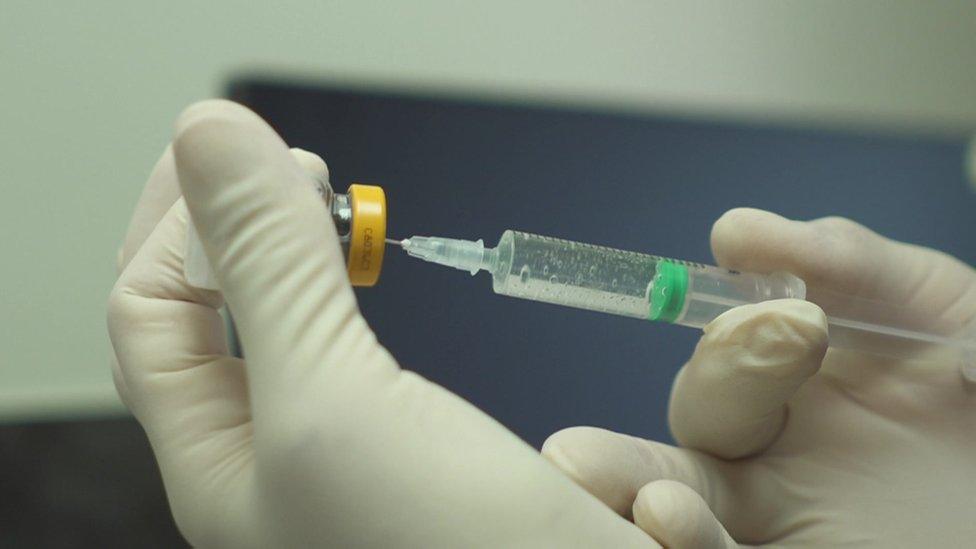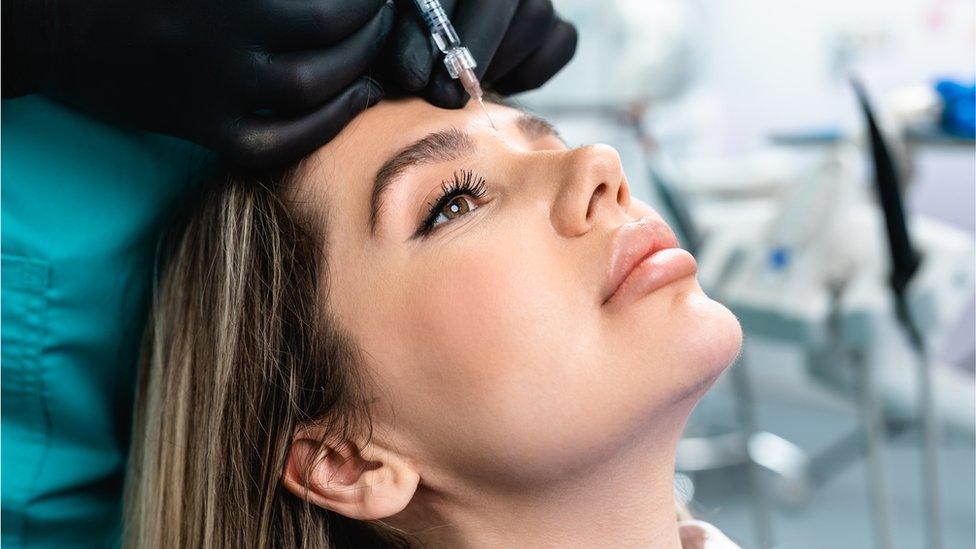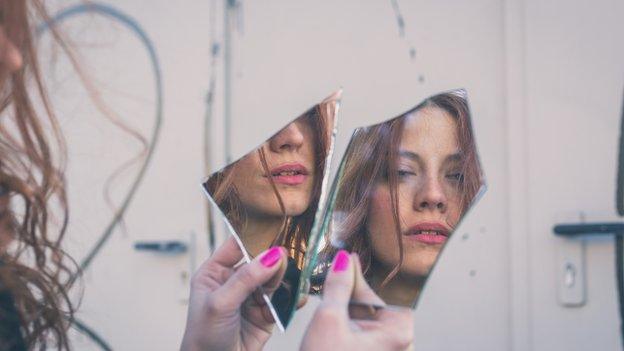Does your aesthetic practitioner have body dysmorphia?
- Published

Dr Michael Prager says many of his industry peers are "unrecognisable" after Botox
Aesthetic practitioners with Body Dysmorphic Disorder (BDD) are at risk of negatively impacting patients, a London cosmetic medic has warned.
Dr Michael Prager said a lot of his industry peers were "unrecognisable" and people could look "rather weird" if treated by a Botox injector with BDD.
A survey found BDD was higher among aesthetic practitioners than patients.
A British College of Aesthetic Medicine spokeswoman said she did not believe such practitioners were a risk.
Dr Bhavjit Kaur agreed, however, that an aesthetic practitioner with BDD may have a different concept of what looks "normal", but added BDD was a mental illness that impacted how people perceived their own body, not other people's.
The 2021 research, thought to be the first of its kind, found that aesthetic nurses had the highest rate of the disorder in a self-selected survey of 51 practitioners.
The authors, London-based Dr Steven Harris and Dr Neetu Johnson, also noted that an increasing number of practitioners were appearing with "exaggerated facial features" as a result of Botox and fillers.

Dr Prager says many people want to fix an internal problem with an external change
Dr Prager, of The Prager Clinic, Knightsbridge, said he had concerns about treating patients with BDD, who often believe that changing their face or body will make them happier.
The medic, who has a degree in medicine and became a cosmetic practitioner after working at a hospital as a senior scientist, said it could create a "terrible cycle" for the patient.
'I don't sell happiness'
"I don't sell happiness," he said. "I sell a medical treatment by definition, with possibly a beneficial cosmetic side effect.
"They want to fix an internal problem with an external change, which for me is obviously not something I would even want to go into."
Research has found up to 15% of cosmetic treatment patients and around half of plastic surgery patients have BDD.
Rachel Kuske, who works in London, said she began finding fault with her nose aged six.
She said: "I remember thinking about my nose, not knowing about plastic surgery, but thinking 'maybe I need something on my nose'."
This, she said, progressed to negative thoughts about her height and hair.
"It's very difficult to accept that you have BDD because your brain is telling you, 'this is a problem'," she said.
Dr Kaur added an aesthetic practitioner with BDD, "may focus on one aspect of the person rather than the whole face as holistic treatment".
She said while there were no studies on the risk of an aesthetic practitioner with BDD on patient welfare, she believed they were not a risk to patient health.
Dr Kaur concluded by saying patients with BDD should be supported and referred for mental health treatment, but not treated by an aesthetic practitioner.
If you have been affected by the issues raised in this story, help and support is available via the BBC Action Line

Follow BBC London on Facebook, external, Twitter , externaland Instagram, external. Send your story ideas to hellobbclondon@bbc.co.uk, external
Related topics
- Published14 June 2023

- Published21 June 2015
